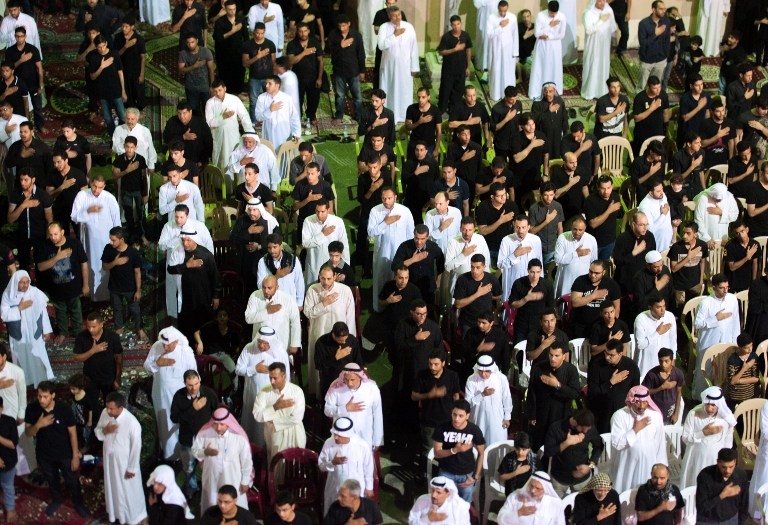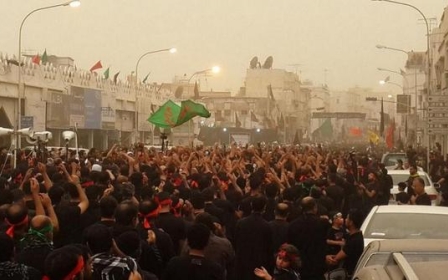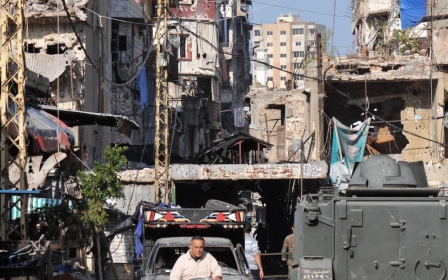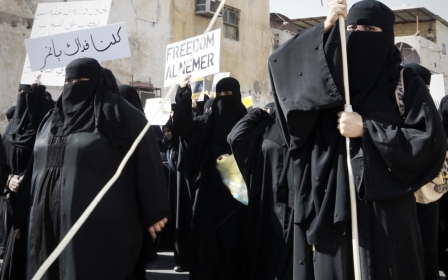Saudi officials blame al-Qaeda for deadly anti-Shiite attack

Saudi Arabian authorities have blamed a deadly attack targeting Shiite worshippers during a major religious festival this week on militants linked to al-Qaeda.
Masked gunmen late on Monday killed five Shiites celebrating Ashura, one of the holiest festivals of their faith, in the kingdom's oil-rich east that has seen several protests in recent weeks.
The next day two Saudi policemen and two suspects linked to the incident died in a shootout in Qassim region, north of the capital Riyadh.
Officers rounded up 15 suspects in several cities after the initial shooting in the Shiite-populated Eastern Province.
"They are followers of the deviant ideology," interior ministry spokesman General Mansur al-Turki was quoted by Asharq al-Awsat as saying, using the term by which Saudi authorities often describe the ideology of al-Qaeda.
No group has so far claimed the attack.
Some violent Sunni groups, like al-Qaeda, consider Shiites heretics and have targeted them elsewhere in the region, including attacks that killed more than 40 people in Baghdad in the 48 hours preceding the peak of Ashura on Tuesday.
The Ashura commemorations mark the killing of Imam Hussein, the grandson of the Prophet Mohammed, by the army of the Caliph Yazid in 680 AD.
Citing medical sources, Asharq al-Awsat said the attack left eight people dead and seven wounded. Police gave a different toll of five dead and nine wounded.
In the past 24 hours, Turki said that security services hunted down suspects involved in the "terrorist" attack in six Saudi cities.
Meanwhile, Saudi Arabia's minister of culture and information was sacked by a royal decree published by the official SPA news agency only hours after he announced the shutdown of a privately owned Sunni television channel, known for its anti-Shiite rhetoric.
"I had ordered the shut down of Wesal channel's bureau in Riyadh and banning it from broadcasting in the kingdom," Abdlaziz Khoja wrote on his Twitter account on Tuesday. "It is not a even a Saudi channel."
Wesal channel is known for hosting Sunni clerics who frequently criticise the Shiite faith.
Protests and sporadic attacks on security forces have wracked Shiite areas of Eastern Province where the minority community complains of marginalisation.
Tensions escalated last month after a Saudi court handed down a death sentence against leading Shiite cleric Nimr al-Nimr, a driving force behind the demonstrations.
Saudi courts began in June 2011 to pass sentence on hundreds of people accused of involvement in bloody al-Qaeda attacks across the Gulf kingdom from 2003 to 2006.
The government launched a relentless crackdown on the extremist network, including a campaign of arrests, in what has been described as wiping out the local al-Qaeda branch.
New MEE newsletter: Jerusalem Dispatch
Sign up to get the latest insights and analysis on Israel-Palestine, alongside Turkey Unpacked and other MEE newsletters
Middle East Eye delivers independent and unrivalled coverage and analysis of the Middle East, North Africa and beyond. To learn more about republishing this content and the associated fees, please fill out this form. More about MEE can be found here.




